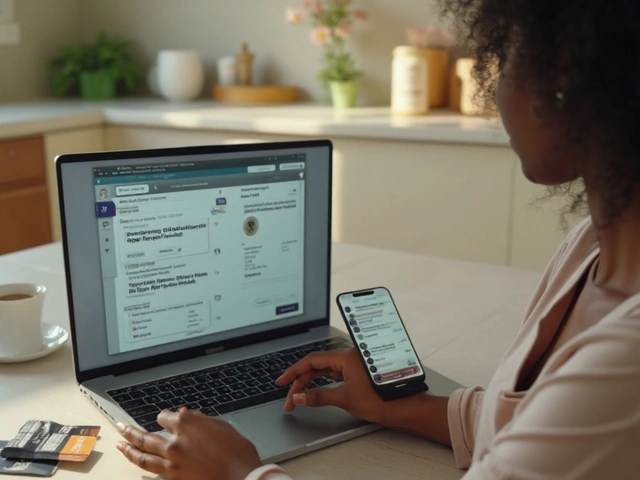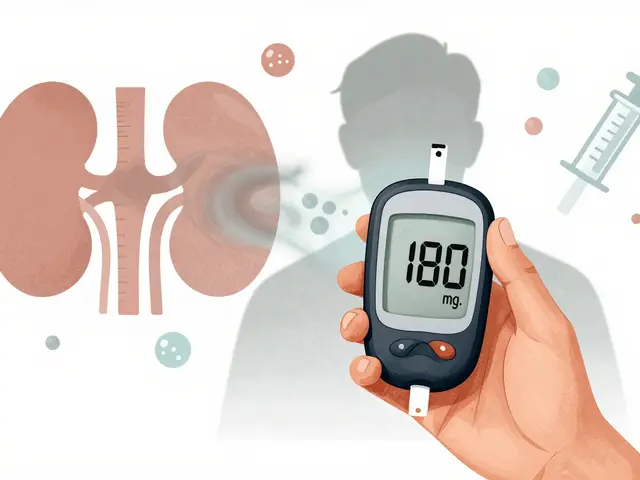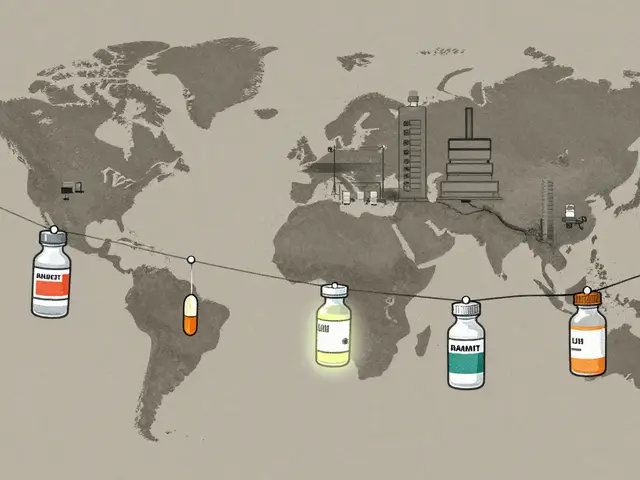Understanding Clozapine: A Powerful Tool in Psychiatry
As a blogger who specializes in healthcare topics, I've found that one of the most fascinating areas of discussion is the use of clozapine in psychiatric treatment. Clozapine is a powerful antipsychotic medication, often utilized as a last resort when other treatments have failed. Its potency and unique mechanisms of action make it a valuable tool in treating conditions such as schizophrenia and other severe mental health disorders. However, its use can be complex, requiring careful monitoring and management to ensure patient safety and efficacy of treatment. This is where the digital age comes into play.
The Rise of Telemedicine: An Overview
Telemedicine has been a game-changer in the healthcare sector. This technology-driven approach allows healthcare professionals to deliver care remotely, making it possible to monitor, diagnose, and treat patients without requiring them to physically visit a healthcare facility. Telemedicine has increased accessibility to healthcare services, particularly for those living in remote areas or who find it difficult to travel. And yes, telemedicine is playing a significant role in the management of patients on clozapine.
Telemedicine and Clozapine: A Perfect Match
Telemedicine's ability to provide remote monitoring is especially beneficial for patients on clozapine. Given that this medication requires regular blood tests to monitor white blood cell counts, telemedicine can facilitate these necessary and frequent checks. By using telemedicine, healthcare providers can keep a closer eye on their patients, promptly identifying any issues or changes in their health status.
Remote Blood Monitoring: How it Works
One of the most significant innovations in telemedicine relevant to clozapine treatment is remote blood monitoring. Patients can collect blood samples at home using a simple finger-prick test, then send them off to a lab for analysis. This not only makes the process more convenient but also greatly reduces the risk of missing a test due to logistical issues.
Telepsychiatry: Reinventing Mental Health Care
Telepsychiatry, a subset of telemedicine, is another key player in the treatment of patients on clozapine. Through video conferencing, psychiatrists can conduct comprehensive psychiatric evaluations, manage medications, and provide psychotherapy. This can be particularly useful for patients on clozapine, who may require frequent adjustments to their medication regimen.
Digital Health Apps: A Complementary Tool
Digital health apps are another tool that offers great promise in managing patients on clozapine. These apps can help patients track their symptoms, medication adherence, and side effects. They can also provide educational resources to help patients better understand their condition and treatment. This can empower patients, enhancing their engagement and compliance with treatment.
The Challenges of Telemedicine and Clozapine
While telemedicine offers many advantages, it is not without its challenges. Issues such as technological problems, privacy concerns, and the need for proper training can pose significant obstacles. In the context of clozapine, ensuring that patients adhere to regular blood tests and accurately report their symptoms can also be challenging.
Bridging the Gap: The Role of Healthcare Providers
Healthcare providers play a crucial role in facilitating the integration of telemedicine into clozapine management. They must be willing to adopt new technologies, educate patients about their use, and remain vigilant in monitoring their patients' health status. This can help ensure that telemedicine is used effectively and safely in the management of clozapine.
The Future of Clozapine and Telemedicine
The marriage of clozapine treatment and telemedicine is still in its early stages, but the potential is immense. As technology continues to evolve, so too will the possibilities for remote monitoring and management of patients on clozapine. The future promises even more sophisticated digital tools, greater accessibility to care, and, ultimately, better patient outcomes.
Final Thoughts
The digital age has revolutionized many aspects of our lives, including how we manage health conditions like those requiring clozapine. As we continue to navigate this new landscape, it's exciting to think about the potential of telemedicine and remote monitoring in improving the lives of patients on clozapine. As always, the key will be balancing the benefits of these new technologies with the need to ensure patient safety and quality of care.








7 comments
Austin Levine
Remote blood testing for clozapine patients is a game-changer. No more driving across town just to get a CBC. I’ve seen people miss doses because of logistics-this fixes that.
Simple, smart, and saves time.
Matthew King
man i never thought i’d say this but i’m kinda glad my shrink switched me to telepsychiatry. i used to dread going in, now i just hop on zoom in my pajamas. the finger prick thing? yeah i did it myself. no big deal. still get the same results. less stress, same safety. win win.
Andrea Swick
I think the real advantage here isn’t just convenience-it’s continuity. When patients are stable enough to manage home blood draws and digital symptom logs, they’re more likely to stay engaged with their treatment long-term. The consistency reduces crisis points, which means fewer ER visits, fewer hospitalizations, and more time spent living instead of managing illness. It’s not just about technology; it’s about dignity. People deserve to be treated as partners in their care, not just cases to be monitored. And honestly? This model empowers people who’ve been told for years they’re too unstable to handle anything on their own. That shift in perception? That’s the quiet revolution.
Amelia Wigton
However, it is imperative to underscore that the implementation of telemedicine-based clozapine management protocols necessitates strict adherence to HIPAA-compliant platforms, rigorous patient authentication protocols, and continuous pharmacokinetic monitoring via encrypted, real-time data streams-otherwise, the risk of therapeutic non-adherence, data breaches, or misinterpretation of lab trends escalates exponentially, potentially leading to agranulocytosis, seizures, or myocarditis.
Keith Bloom
this whole telemedicine thing is just lazy medicine. you can’t diagnose psychosis over zoom. and who’s gonna make sure the patient actually pricks their finger? i bet half of them just send in fake blood samples. plus, half these apps are garbage-my cousin’s aunt’s dog used one and it said she was ‘at risk for psychosis’ because she cried during a commercial. we’re turning psychiatry into a tiktok trend.
Ben Jackson
Let’s not forget the human element here. Tech is a tool, not a replacement. The real magic happens when clinicians use these digital tools to deepen connection-not replace it. I’ve had patients who opened up more on a video call than in person. The anonymity, the comfort of home-it lowers defenses. Pair that with remote monitoring, and you’ve got a feedback loop that’s proactive, not reactive. We’re not just managing meds-we’re rebuilding trust.
Bhanu pratap
In India, we are beginning to see the same transformation-patients in remote villages now receive clozapine care via mobile health vans with integrated telepsychiatry units. The joy on their faces when they realize they don’t have to travel 300 kilometers just to get a blood test? Priceless. This isn’t just innovation-it’s justice. Every life deserves access to care, no matter where they live. The future is not distant-it is already here, quietly healing.